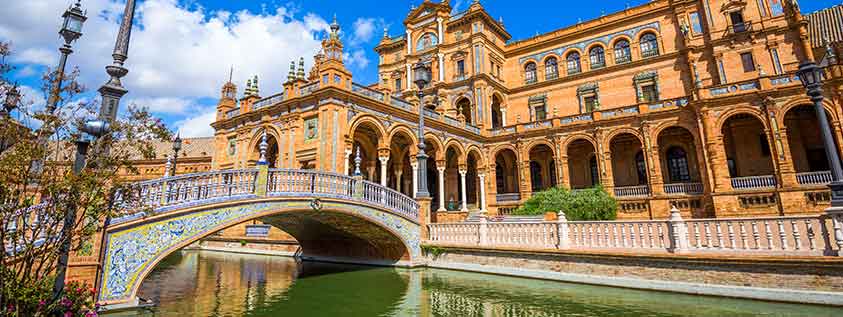Beckham Law Spain for Expats: Benefit, Conditions, Filing
The Beckham law creates opportunities for expats to save money. It is also know as the Special Expats’ Tax Regime (“SETR”) or Régimen Especial para Trabajadores Desplazados. Knowing the rules to take advantage of this law allows you to keep more money in your pocket when filing taxes. In this article, we will discuss what it is, what conditions their are, as well as how to file a tax return under these guidelines.
What is the Beckham law in Spain?
The Royal Decree 687/2005, popularly known as the Beckham Law is a special expats tax regime. It enables foreigners that are approved by the relevant Spanish tax authorities to pay a 24% flat rate for income earned in the country.
Expats who fall under this regime are not treated as tax residents whose worldwide income is taxed as an progressive tax rate of 19% up to 45%.
Normally when you move to Spain to work, you become a tax resident and are subject to the normal rate for Spanish citizens. However, with the Beckham law, instead of being taxed at the resident income tax rate, you can pay it as a non-resident.

Types of residencies in Spain
To grasp a better understanding of what the Beckham law implies we discuss the different types of residencies and taxes for foreign workers in Spain.
Residents in Spain
A resident in Spain is someone that lives in Spain on a permanent basis. This means that their principal interests are situated in the country, not outside of it.
As mentioned before, there are several conditions that can lead someone to become a tax resident and thus be subject to the flat rate set for Spanish residents:
- You live in Spain more than 183 days during the tax year (which runs from January 1 through December 31).
- You live in Spain less than 183 days, but your spouse and children or those of your legal dependents stay outside Spain at least 183 days during the tax year. If you are present in Spain for more than 183 days, but this is not the case with your family members, you will be a resident for tax purposes.
- Your center of economic interest is situated in Spain. This means that the main part of your economic activities and interests is carried out inside Spain, regardless of your physical presence or activity abroad.
Normal tax implications for residents of Spain
Residents of Spain are subject to the same Spanish income taxes as Spanish citizens, this tax is known as the Spanish Personal Income Tax (PIT), or Impuesto sobre la Renta de las Personas Físicas (IRPF).
This tax is levied on all income and capital gains, whether foreign or domestic. The tax is a progressive tax on income and capital gains with a tax bracket that starts at 19% and goes up to the top marginal rate of 47%.
Non-Residents in Spain
A non-resident in Spain is a person who is not resident in Spain. The law states that you are considered to be a non-resident in Spain if one of the following conditions applies:
- You live outside the Spanish territory more than 183 days during the tax year (which runs from January 1 through December 31).
- You live in the Spanish territory less than 183 days, but your spouse and children or those of your legal dependents stay outside Spain at least 183 days during the tax year. In this case, those family members are also considered as non-residents.
- Your center of economic interest is situated outside Spain. This means that the main part of your economic activities and interests is carried out outside Spain, rather than in a country other than Spain.
Normal tax implications for non-resident of Spain
Non-residents in Spain are only required to pay income tax on their earnings from Spain. It is also known as the Non-resident income tax (NRIT) or Impuesto sobre la Renta de No Residentes (IRNR). In general, the flat tax rate for non-residents is 24%. For citizens from the EU/EAA the rate is 19%. They will be charged a flat and set rate.
Residents with Beckham law tax residence
When you are a resident in Spain, and you get approved for the Beckham law you will be considered as non-resident in Spain. This means that your worldwide income is not subject to Spanish tax, but only what you earn in Spain.In other words,
- You can spend more then 183 days in Spain without having to pay taxes on your worldwide income.
- You will only be paying taxes on your income in Spain
- You won’t pay the progressive tax and instead a flat 24% up to 600.000 Euro. When this is exceeds you will pay a fixed 45%
As you can read, this Spanish income tax law is very attractive to foreign nationals who will need to work more then 183 days in Spain. With the Beckham law in Spain the tax burden can be significantly lowered.
What are the conditions for the Beckham Law?
In order to apply the Beckham Law, the person should not have been a resident in Spain during the 10-year tax period before the year they are settling in the country. Also, the applicant must be moving to Spain for work reasons. For this reason, you are required to have an employment contract where the employer is a Spanish company.
Other criteria that need to be met by expats that want to apply are:
- To qualify, the applicant must be a first-time resident of Spain.
- The applicant must have moved to Spain to take up a work contract.
- Employment responsibilities must be carried out in Spain, but if they are required to perform part of their duties outside of Spain, the proportion of their income derived from these sources cannot exceed 15 percent.
- Within 6 months of beginning the employment contract, the application must be submitted.
- The agreement is valid for a total of 6 years.
- All capital gains made in Spanish territory are taxed at a rate of 35%.
If you wish to be a director in a Spanish company, then you must have equity in no more than 25% of the company.
Applying for the Beckham Law
When it comes to the application process, the application must be submitted within 6 months starting from the date of the inscription in Social Security as an employee for the Spanish company. As a result, applications after the 6 months are promptly declined.
The application process starts by first filling out and sending the Modelo 149, which informs the Spanish tax agency of the intention to benefit from the tax regime. Candidates need a passport, NIE number and Social security number.
Model 151
After applying via the Modelo 149, and getting accepted, the person must then do their tax declarations by filling out and presenting Modelo 151.
Other taxes and the Beckham law
Next to paying lower income tax, other taxes also need to be payed Spain. Below we discuss the taxes and how the Beckham law effects them.
Capital gains
Capital gains are not exempt under the Beckham law. Dividend gains, including profits earned from sales of movable and immovable assets (property), are charged at a fixed rate of 19%. As a non-resident, you are liable to pay income tax in Spain for any capital gains earned from outside Spain. Capital gains earned from outside Spain must be still paid to the corresponding nation per their taxation rules.
Wealth tax
When you fall under the Beckham law you will only have to pay wealth tax on your assets located in Spain. If you would fall under the PIT, then you would have to pay taxes on your worldwide assets.
The wealth tax is a tax payed on the net value of your assets such as real estate, stocks, accounts and life insurance.
Local taxes
A resident under the Beckham Law must pay local taxes. For example when you own property in Spain, you might have to pay local property taxes.
Help from experts paying your income tax
If you are looking to move to Spain, then we can help you with Tax advice in Spain. will help you decide what works for you based on your personal objectives, and current Spanish compliant requirements. If you qualify for the Beckham law, we will guide you through the entire process and describe all the steps you should consider to make more informed decisions.
Where did the Beckham law come from?
British Footballer David Beckham was one of the first foreigners to benefit from the decree, hence the popular name “Beckham Law”. He was taxed as a non-resident when he famously played for Real Madrid in Spain.
The Beckham Law is, without doubt, a significant tax benefit in terms of tax savings. It has benefited a diverse group of people including athletes, foreign entrepreneurs and wealthy expats. Essentially, it enables non-resident foreigners to make significant investments in Spain while being liable to pay less tax than a resident would pay. The special tax regime is ideal for foreigners who become Spanish tax resident because of an assignment to Spain.
Disclaimer: Information on this page may be incomplete or outdated. Under no circumstances should the information listed be considered professional legal advice. We highly recommend seeking guidance from a legal expert if you lack extensive knowledge or experience dealing with any of the procedures outlined in these articles.




